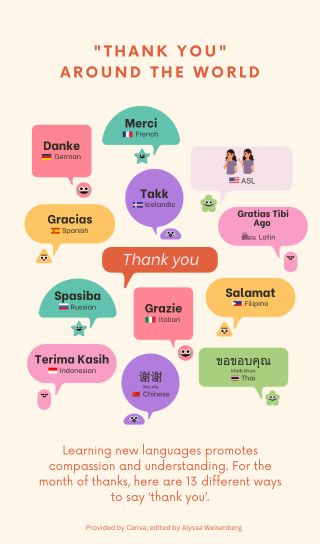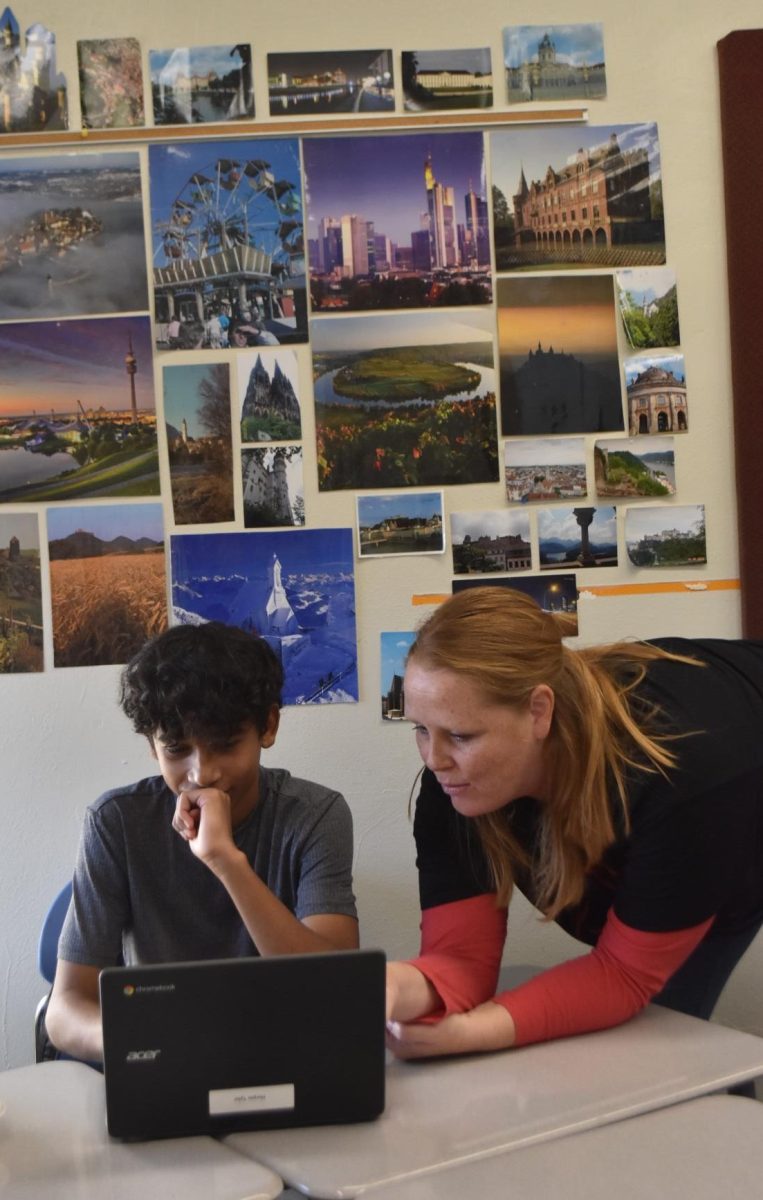Out of the 7,100 languages spoken today, English is the third most popular language, according to translatedtoday.com. Mandarin is the most popular language. So, why doesn’t Parkway Central High School offer Mandarin? What influences a student’s choice to take one if any of the four languages that Central offers?
For sophomore and Latin student Ceci Tremont, future job considerations and being able to apply the said language plays a major role in deciding to take a language.
“I knew that I wanted to go into medicine in college,” Tremont said. “I’d heard that Latin helped with memorizing terms and is also on the LSAT (Law School Admissions Test)… It’s really helped me more with English class, honestly, because I’ve learned more about how the language [English] actually works.”
A large portion of students at Parkway Central grew up speaking more than one language. Sophomore Sabeen Munir understands 8 languages and still decided to take on German at Parkway Central. Getting into the right college was a significant factor for her in making the decision to take another language.
“I wanted to learn another language because most colleges want at least two years of a continuous language in high school,” Munir said.
Christie Staszcuk, world language co-department chair and German teacher notes that one of the benefits in studying German is the light it sheds on a college application.
“German has this reputation of being the hard language,” said Staszcuk. “But, it’s not really any harder than any other language. So, in my opinion, there are fewer students who have that on the application and it makes my kids stand out more.”
Colleges have a much wider influence on the languages that are taught than simply persuading a student to take a language based on what looks good on an application. Andrea Williamson, world languages co-department chair and Spanish teacher explains that a lot of what is taught at Central is based on what colleges are able to teach. If colleges aren’t able to teach students, those students won’t become teachers to teach high schoolers or the next generation of college students. There just aren’t enough teachers.
“A lot of people wonder why don’t we offer Chinese? Why don’t we offer Arabic?” Williamson said. “The reason is because the colleges are not certifying teachers like that in the numbers that we are certifying the French and Spanish teachers. So, it’s kind of like, which comes first: the chicken or the egg?”
This challenge is one of the multiple reasons for the changes this year in the World Language program. Beginning with the 2023 school year, the World Languages program started to sunset the German program. This year, freshmen at Parkway Central were not allowed to take German as a language option and this will be enforced indefinitely. Which means that the German program is essentially being phased out. Head Principal Tim McCarthy explains that in addition to a decrease in qualified teachers there is also a decrease in interest from students.
“I think that some would say there isn’t the student interest in German that there once was,” McCarthy said. “I think, combined with that, it became increasingly more difficult to find a highly qualified, highly effective teacher for German.”

According to Lauren Farrelly, the World Languages Lead of the Parkway district, there was a 63% decrease over a five year span in enrollment of German students.
“In 2022, the District made the very difficult decision to begin sunsetting the German program in Parkway,” Farrelly said. “It was a decision that the District did not take lightly.”
While not promised, the goal is that Central will incorporate ASL into the World languages program. This program has developed in other Parkway schools. Parkway West is the center for the deaf and hard of hearing of the Parkway schools and has already incorporated ASL. Parkway South has recently incorporated ASL as well.
However, yet again, the challenge is finding qualified teachers. Because teachers who know sign language are often certified with a special education degree, it is more of a challenge to find a teacher with a K- 12 teaching credential that is also fluent in sign language.
“ASL is not an area of certification with DESE (Department of Elementary and Secondary Education).” Williamson said. “So, in order to be hired to teach ASL, you have to be certified to teach something for that age group…And then for Parkway, you also have to interview in ASL and show that you are able to use that language to communicate and that’s where the struggle has been finding people who need both of those qualifications.”
While a student may not be learning the language that they hoped for or one that may not be needed for their future. According to a list generated by Auburn University, students gain a lot by learning a new language. Learning multiple languages strengthens students’ minds and makes them better overall learners. Furthermore, taking a language in high school takes away the stress and the feeling of needing something for a job.
“I really feel like it helps you because you learn to analyze things in a little bit different way,” Williamson said. “… and then when students choose to learn to use their language in their work life, it can be like a very scary decision because you think, ‘now it really counts.’ It’s not just, ‘can I pass the test?’”






